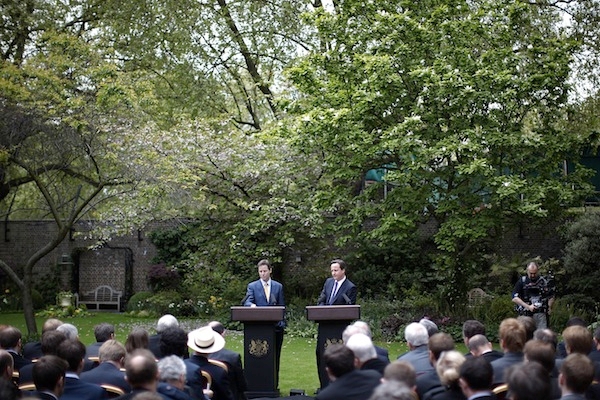Finally, the copper-bottomed, unvarnished Programme for Government Update, aka the Secret Audit, has landed. You can read the full document here, but in summary, it’s not immediately very helpful. It is laid out as a point-by-point ‘analysis’ of how the government is meeting its pledges in the Coalition Agreement, but the wording is such that you can’t actually tell whether there are any areas on which it has failed.
Reading this document, you’d think everything was pretty hunky-dory with the government as there is no assessment of whether each pledge is completed, underway, or forgotten. This is the assessment of the House of Lords reform pledge:
We published a draft Bill and White Paper on House of Lords reform in May 2011. These were subject to pre- legislative scrutiny by an ad hoc Joint Committee.
The Government responded to the Joint Committee’s recommendations and introduced the House of Lords Reform Bill on 27 June 2012. The Government took the decision not to proceed with the Bill following second reading in the House of Commons and the lack of support for the necessary timetabling motion.
As for the progress on the boundary changes, the document simply says there was a provision for those. It might offer a vague glimmer of hope for Tory MPs pushing for tax breaks for married couples, going a couple of words further on the main Mid-Term Review document:
We have undertaken to bring forward proposals by the end of this Parliament.
But on whether it has flouted certain pledges, the audit is not at all helpful. This, for instance, is what the audit has to say about the pledge on no top-down reorganisations of the NHS:
The measures contained within the Health and Social Care Act 2012 will help deliver better health, better care and better value for money, encouraging greater focus on preventing ill health and empowering local communities to plan services according to local priorities. The modernisation will help the health service to develop from a system of management control to a system where power and decision-making is devolved to the most appropriate level, and has also enabled us to make substantial administrative savings.
There are fewer managers and more doctors in the NHS since the 2010 General Election. The number of people waiting longer than 26 and 52 weeks to start treatment is at its lowest level since records began.
And this is what it says about limiting the number of special advisers:
The numbers of special advisers Ministers can appoint are set out in paragraph 3.2 of the Ministerial Code, published in May 2010.
It’s rather difficult to understand why Patrick Rock was so worried about this document getting out: it answers very few questions.







Comments